
Augustine of Hippo, also known as Saint Augustine, was a theologian and philosopher of Berber origin and the bishop of Hippo Regius in Numidia, Roman North Africa. His writings influenced the development of Western philosophy and Western Christianity, and he is viewed as one of the most important Church Fathers of the Latin Church in the Patristic Period. His many important works include The City of God, On Christian Doctrine, and Confessions.

Lucius Caecilius FirmianussignoLactantius was an early Christian author who became an advisor to Roman emperor Constantine I, guiding his Christian religious policy in its initial stages of emergence, and a tutor to his son Crispus. His most important work is the Institutiones Divinae, an apologetic treatise intended to establish the reasonableness and truth of Christianity to pagan critics.
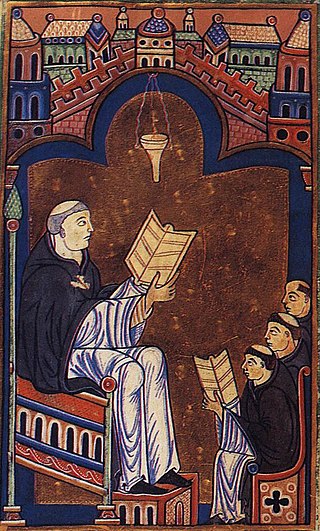
Richard of Saint Victor was a Medieval Scottish philosopher and theologian and one of the most influential religious thinkers of his time. A canon regular, he was a prominent mystical theologian, and was prior of the famous Augustinian Abbey of Saint Victor in Paris from 1162 until his death in 1173.

Tertullian was a prolific early Christian author from Carthage in the Roman province of Africa. He was the first Christian author to produce an extensive corpus of Latin Christian literature. He was an early Christian apologist and a polemicist against heresy, including contemporary Christian Gnosticism. Tertullian has been called "the father of Latin Christianity", as well as "the founder of Western theology".

Hilary of Poitiers was Bishop of Poitiers and a Doctor of the Church. He was sometimes referred to as the "Hammer of the Arians" and the "Athanasius of the West". His name comes from the Latin word for happy or cheerful. In addition to his important work as bishop, Hilary was married and the father of Abra of Poitiers, a nun and saint who became known for her charity.
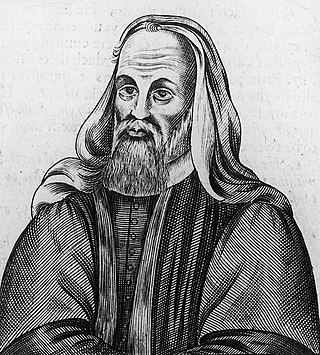
Pelagius was a Romano-British theologian known for promoting a system of doctrines which emphasized human choice in salvation and denied original sin. Pelagius was accused of heresy at the synod of Jerusalem in 415 and his doctrines were harshly criticized by Augustine of Hippo, especially the Pelagian views about mankind's good nature and individual responsibility for choosing asceticism. Pelagius especially stressed the freedom of human will. Very little is known about the personal life and career of Pelagius.
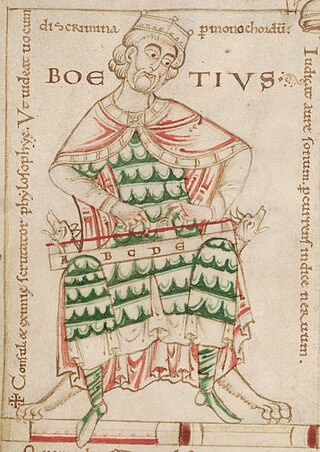
Anicius Manlius Severinus Boethius, commonly known simply as Boethius, was a Roman senator, consul, magister officiorum, historian, and philosopher of the Early Middle Ages. He was a central figure in the translation of the Greek classics into Latin, a precursor to the Scholastic movement, and, along with Cassiodorus, one of the two leading Christian scholars of the 6th century. The local cult of Boethius in the Diocese of Pavia was sanctioned by the Sacred Congregation of Rites in 1883, confirming the diocese's custom of honouring him on the 23 October.
Aelius Festus Aphthonius is believed to be the author of a Latin work called De metris omnibus incorporated as part of the Ars Grammatica of the fourth-century AD Christian writer Gaius Marius Victorinus.
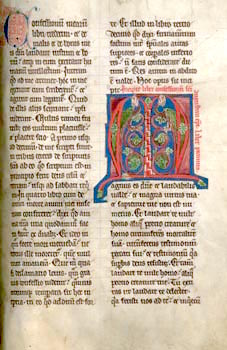
Confessions is an autobiographical work by Augustine of Hippo, consisting of 13 books written in Latin between AD 397 and 400. The work outlines Augustine's sinful youth and his conversion to Christianity. Modern English translations of it are sometimes published under the title The Confessions of Saint Augustine in order to distinguish the book from other books with similar titles. Its original title was Confessions in Thirteen Books, and it was composed to be read out loud with each book being a complete unit.

Hugh of Saint Victor was a Saxon canon regular and a leading theologian and writer on mystical theology.
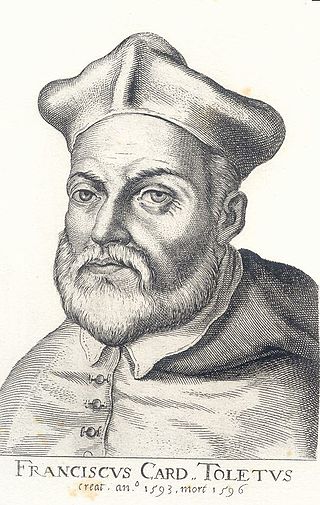
Francisco de Toledo was a Spanish Jesuit priest and theologian, Biblical exegete and professor at the Roman College. He is the first Jesuit to have been made a cardinal.

Saint Victorinus of Pettau was an Early Christian ecclesiastical writer who flourished about 270, and who was martyred during the persecutions of Emperor Diocletian. A Bishop of Poetovio in Pannonia, Victorinus is also known as Victorinus Petavionensis or Poetovionensis. Victorinus composed commentaries on various texts within the Christians' Holy Scriptures.
Homoousion is a Christian theological term, most notably used in the Nicene Creed for describing Jesus as "same in being" or "same in essence" with God the Father. The same term was later also applied to the Holy Spirit in order to designate him as being "same in essence" with the Father and the Son. Those notions became cornerstones of theology in Nicene Christianity, and also represent one of the most important theological concepts within the Trinitarian doctrinal understanding of God.

De doctrina Christiana is a theological text written by Augustine of Hippo. It consists of four books that describe how to interpret and teach the Scriptures. The first three of these books were published in 397 and the fourth added in 426. By writing this text, Augustine set three tasks for Christian teachers and preachers: to discover the truth in the contents of the Scriptures, to teach the truth from the Scriptures, and to defend scriptural truth when it was attacked.

The term Hexameron refers either to the genre of theological treatise that describes God's work on the six days of creation or to the six days of creation themselves. Most often these theological works take the form of commentaries on Genesis. As a genre, hexameral literature was popular in the early church and medieval periods. The word derives its name from the Greek roots hexa-, meaning "six", and hemer-, meaning "day".

Latin translations of the 12th century were spurred by a major search by European scholars for new learning unavailable in western Europe at the time; their search led them to areas of southern Europe, particularly in central Spain and Sicily, which recently had come under Christian rule following their reconquest in the late 11th century. These areas had been under Muslim rule for a considerable time, and still had substantial Arabic-speaking populations to support their search. The combination of this accumulated knowledge and the substantial numbers of Arabic-speaking scholars there made these areas intellectually attractive, as well as culturally and politically accessible to Latin scholars. A typical story is that of Gerard of Cremona, who is said to have made his way to Toledo, well after its reconquest by Christians in 1085, because he:
arrived at a knowledge of each part of [philosophy] according to the study of the Latins, nevertheless, because of his love for the Almagest, which he did not find at all amongst the Latins, he made his way to Toledo, where seeing an abundance of books in Arabic on every subject, and pitying the poverty he had experienced among the Latins concerning these subjects, out of his desire to translate he thoroughly learnt the Arabic language.
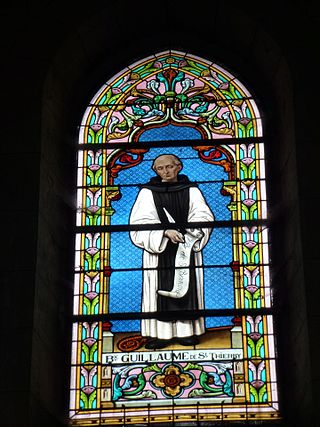
William of Saint-Thierry, O. Cist was a twelfth-century Benedictine, theologian and mystic from Liège who became abbot of Saint-Thierry in France, and later joined the Cistercian Order.
An ars grammatica is a generic or proper title for surveys of Latin grammar. The first ars grammatica seems to have been composed by Remmius Palaemon, but is now lost. The most famous ars grammatica since late antiquity has been that composed by Donatus.
Christian views on the classics have varied throughout history. In the early years of Christianity, the writings of Classical and Hellenistic authors were widely spread by Christian teachers. However, during the Dark Ages, the decline in the study of this literature as a whole, as well as the waning of Christianity's popularity throughout Europe, resulted in the extinction of its effect in Christian life until the spread of Islam—the reintroduction of Classical texts—and the "rebirth" of Ancient Greek and Roman philosophies and arts during the Renaissance, where "artists and philosophers, each in their own way, combined Christian belief and ancient philosophy into a balanced, rational, humanistic system". Today, churches' views are generally consistent with those of Renaissance humanists' in that "Christians should be able to read the classics ... because it is part of the Western heritage ... [and] because it is part of Christianity’s inheritance."
Neoplatonism is a version of Platonic philosophy that emerged in the 3rd century AD against the background of Hellenistic philosophy and religion. The term does not encapsulate a set of ideas as much as a series of thinkers. Among the common ideas it maintains is monism, the doctrine that all of reality can be derived from a single principle, "the One".













